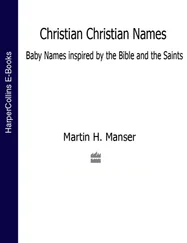Saint Augustine
Theological Treatise on the Teachings of Scriptures
Translator: Marcus Dods
e-artnow, 2021
Contact: info@e-artnow.org
EAN: 4064066388126
Preface.
Book I.
Chapter 1. The Interpretation of Scripture Depends on the Discovery and Enunciation of the Meaning, and is to Be Undertaken in Dependence on God’s Aid.
Chapter 2. What a Thing Is, and What A Sign.
Chapter 3. Some Things are for Use, Some for Enjoyment.
Chapter 4. Difference of Use and Enjoyment.
Chapter 5. The Trinity the True Object of Enjoyment.
Chapter 6. In What Sense God is Ineffable.
Chapter 7. What All Men Understand by the Term God.
Chapter 8. God to Be Esteemed Above All Else, Because He is Unchangeable Wisdom.
Chapter 9. All Acknowledge the Superiority of Unchangeable Wisdom to that Which is Variable.
Chapter 10. To See God, the Soul Must Be Purified.
Chapter 11. Wisdom Becoming Incarnate, a Pattern to Us of Purification.
Chapter 12. In What Sense the Wisdom of God Came to Us.
Chapter 13. The Word Was Made Flesh.
Chapter 14. How the Wisdom of God Healed Man.
Chapter 15. Faith is Buttressed by the Resurrection and Ascension of Christ, and is Stimulated by His Coming to Judgment.
Chapter 16. Christ Purges His Church by Medicinal Afflictions.
Chapter 17. Christ, by Forgiving Our Sins, Opened the Way to Our Home.
Chapter 18. The Keys Given to the Church.
Chapter 19. Bodily and Spiritual Death and Resurrection.
Chapter 20. The Resurrection to Damnation.
Chapter 21. Neither Body Nor Soul Extinguished at Death.
Chapter 22. God Alone to Be Enjoyed.
Chapter 23. Man Needs No Injunction to Love Himself and His Own Body.
Chapter 24. No Man Hates His Own Flesh, Not Even Those Who Abuse It.
Chapter 25. A Man May Love Something More Than His Body, But Does Not Therefore Hate His Body.
Chapter 26. The Command to Love God and Our Neighbor Includes a Command to Love Ourselves.
Chapter 27. The Order of Love.
Chapter 28. How We are to Decide Whom to Aid.
Chapter 29. We are to Desire and Endeavor that All Men May Love God.
Chapter 30. Whether Angels are to Be Reckoned Our Neighbors.
Chapter 31. God Uses Rather Than Enjoys Us.
Chapter 32. In What Way God Uses Man.
Chapter 33. In What Way Man Should Be Enjoyed.
Chapter 34. Christ the First Way to God.
Chapter 35. The Fulfillment and End of Scripture is the Love of God and Our Neighbor.
Chapter 36. That Interpretation of Scripture Which Builds Us Up in Love is Not Perniciously Deceptive Nor Mendacious, Even Though It Be Faulty. The Interpreter, However, Should Be Corrected.
Chapter 37. Dangers of Mistaken Interpretation.
Chapter 38. Love Never Faileth.
Chapter 39. He Who is Mature in Faith, Hope and Love, Needs Scripture No Longer.
Chapter 40. What Manner of Reader Scripture Demands.
Book II.
Chapter 1. Signs, Their Nature and Variety.
Chapter 2. Of the Kind of Signs We are Now Concerned with.
Chapter 3. Among Signs, Words Hold the Chief Place.
Chapter 4. Origin of Writing.
Chapter 5. Scripture Translated into Various Languages.
Chapter 6. Use of the Obscurities in Scripture Which Arise from Its Figurative Language.
Chapter 7. Steps to Wisdom: First, Fear; Second, Piety; Third, Knowledge; Fourth, Resolution; Fifth, Counsel; Sixth, Purification of Heart; Seventh, Stop or Termination, Wisdom.
Chapter 8. The Canonical Books.
Chapter 9. How We Should Proceed in Studying Scripture.
Chapter 10. Unknown or Ambiguous Signs Prevent Scripture from Being Understood.
Chapter 11. Knowledge of Languages, Especially of Greek and Hebrew, Necessary to Remove Ignorance or Signs.
Chapter 12. A Diversity of Interpretations is Useful. Errors Arising from Ambiguous Words.
Chapter 13. How Faulty Interpretations Can Be Emended.
Chapter 14. How the Meaning of Unknown Words and Idioms is to Be Discovered.
Chapter 15. Among Versions a Preference is Given to the Septuagint and the Itala.
Chapter 16. The Knowledge Both of Language and Things is Helpful for the Understanding of Figurative Expressions.
Chapter 17. Origin of the Legend of the Nine Muses.
Chapter 18. No Help is to Be Despised, Even Though It Come from a Profane Source.
Chapter 19. Two Kinds Of Heathen Knowledge.
Chapter 20. The Superstitious Nature of Human Institutions.
Chapter 21. Superstition of Astrologers.
Chapter 22 . The Folly of Observing the Stars in Order to Predict the Events of a Life.
Chapter 23. Why We Repudiate Arts of Divination.
Chapter 24. The Intercourse and Agreement with Demons Which Superstitious Observances Maintain.
Chapter 25. In Human Institutions Which are Not Superstitious, There are Some Things Superfluous and Some Convenient and Necessary.
Chapter 26. What Human Contrivances We are to Adopt, and What We are to Avoid.
Chapter 27. Some Departments of Knowledge, Not of Mere Human Invention, Aid Us in Interpreting Scripture.
Chapter 28. To What Extent History is an Aid.
Chapter 29. To What Extent Natural Science is an Exegetical Aid.
Chapter 30. What the Mechanical Arts Contribute to Exegetics.
Chapter 31. Use of Dialectics. Of Fallacies.
Chapter 32. Valid Logical Sequence is Not Devised But Only Observed by Man.
Chapter 33. False Inferences May Be Drawn from Valid Reasonings, and Vice Versa.
Chapter 34. It is One Thing to Know the Laws of Inference, Another to Know the Truth of Opinions.
Chapter 35. The Science of Definition is Not False, Though It May Be Applied to Falsities.
Chapter 36. The Rules of Eloquence are True, Though Sometimes Used to Persuade Men of What is False.
Chapter 37. Use of Rhetoric and Dialectic.
Chapter 38. The Science of Numbers Not Created, But Only Discovered, by Man.
Chapter 39. To Which of the Above-Mentioned Studies Attention Should Be Given, and in What Spirit.
Chapter 40. Whatever Has Been Rightly Said by the Heathen, We Must Appropriate to Our Uses.
Chapter 41. What Kind of Spirit is Required for the Study of Holy Scripture.
Chapter 42. Sacred Scripture Compared with Profane Authors.
Book III.
Chapter 1. Summary of the Foregoing Books, and Scope of that Which Follows.
Chapter 2. Rule for Removing Ambiguity by Attending to Punctuation.
Chapter 3. How Pronunciation Serves to Remove Ambiguity. Different Kinds of Interrogation.
Chapter 4. How Ambiguities May Be Solved.
Chapter 5. It is a Wretched Slavery Which Takes the Figurative Expressions of Scripture in a Literal Sense.
Chapter 6. Utility of the Bondage of the Jews.
Chapter 7. The Useless Bondage of the Gentiles.
Chapter 8. The Jews Liberated from Their Bondage in One Way, the Gentiles in Another.
Chapter 9. Who is in Bondage to Signs, and Who Not.
Chapter 10. How We are to Discern Whether a Phrase is Figurative.
Chapter 11. Rule for Interpreting Phrases Which Seem to Ascribe Severity to God and the Saints.
Chapter 12. Rule for Interpreting Those Sayings and Actions Which are Ascribed to God and the Saints, and Which Yet Seem to the Unskillful to Be Wicked.
Chapter 13. Same Subject, Continued.
Chapter 14. Error of Those Who Think that There is No Absolute Right and Wrong.
Chapter 15. Rule for Interpreting Figurative Expressions.
Chapter 16. Rule for Interpreting Commands and Prohibitions.
Chapter 17. Some Commands are Given to All in Common, Others to Particular Classes.
Chapter 18. We Must Take into Consideration the Time at Which Anything Was Enjoyed or Allowed.
Читать дальше












